Early China Seminar Program Archive
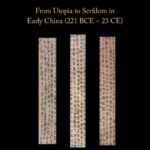 January 30, 2026 - Early China Seminar Lecture Series - Postponed
January 30, 2026 - Early China Seminar Lecture Series - Postponed
"Convict Politics: From Utopia to Serfdom in Early China"
Speaker: Liang Cai, University of Notre Dame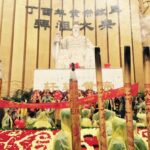 December 5, 2025 - Early China Seminar Lecture Series
December 5, 2025 - Early China Seminar Lecture Series
"The Cult of the Yellow Emperor in China"
Speaker: Shu-Li Wang, Academia Sinica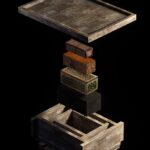 November 7, 2025 - Early China Seminar Lecture Series
November 7, 2025 - Early China Seminar Lecture Series
"Digital Mawangdui"
Speaker: Chenchen Lü, Harvard University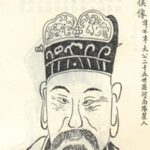 October 17, 2025 - Early China Seminar Lecture Series
October 17, 2025 - Early China Seminar Lecture Series
"Master, State and Patron"
Speaker: Andrew Meyer, Brooklyn College CUNY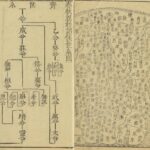 September 26, 2025 - Early China Seminar Lecture Series
September 26, 2025 - Early China Seminar Lecture Series
"The Paradox of Hegemony"
Speaker: Chris Kim, New York University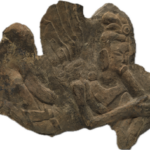 April 11, 2025 - Early China Seminar Lecture Series (virtual)
April 11, 2025 - Early China Seminar Lecture Series (virtual)
“Subtle Politics: The Case of Ritual Music in the Northern Zhou”
Speaker: Noa Hegesh, Tel Aviv University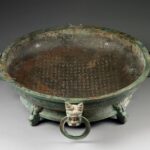 March 28, 2025 - Early China Seminar Lecture Series
March 28, 2025 - Early China Seminar Lecture Series
"Aristocratic Lineage Structures in Western Zhou"
Speaker: Tao Duan, Fudan University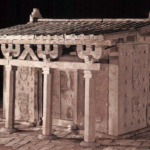 February 7, 2025 - Early China Seminar Lecture Series
February 7, 2025 - Early China Seminar Lecture Series
“Staging the Corpse: Performativity and Materiality in Northern Wei Mortuary Art”
Speaker: Fan Zhang, Tulane University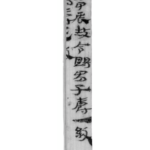 December 6, 2024 - Early China Seminar Lecture Series
December 6, 2024 - Early China Seminar Lecture Series
“A World without Hope: Putting an End to Luck in Early Chinese Thought”
Speaker: Trenton Wilson, Princeton University November 8, 2024 - Early China Seminar Lecture Series (virtual)
November 8, 2024 - Early China Seminar Lecture Series (virtual)
“A Deep History of Human Activity in the Jiuzhaigou National Park”
Speaker: Jade d’Alpoim Guedes, University of Washington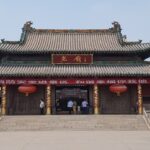 October 11, 2024 - Early China Seminar Lecture Series
October 11, 2024 - Early China Seminar Lecture Series
“Localizing Sagehood: Cultural Memory of Yao, Shun, and Yu in Shanxi”
Speaker: Jae-hoon Shim, Dankook University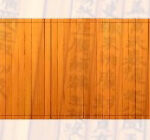 September 27, 2024 - Early China Seminar Lecture Series
September 27, 2024 - Early China Seminar Lecture Series
“History and Lore: Interpretive Emplotment and 'Empty Writing' in the 'Hereditary House of Zhao'”
Speaker: Amelia Ying Qin, California State University, Sacramento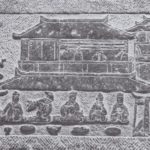 April 19, 2024 - Early China Seminar Lecture Series
April 19, 2024 - Early China Seminar Lecture Series
“Remembrance in Clay and Stone: Early Memorial and Funerary Art of Southwest China”
Speaker: Hajni Elias, University of Cambridge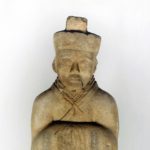 March 29, 2024 - Early China Seminar Lecture Series
March 29, 2024 - Early China Seminar Lecture Series
“Local Administrative Centers and their Transitions during the Warring States and Qin-Han Period”
Speaker: Tao Guo , Central China Normal University (China)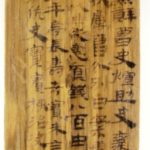 February 2, 2024 - Early China Seminar Lecture Series
February 2, 2024 - Early China Seminar Lecture Series
“Tracing the Origins and Evolution of the Signature System in Early Imperial China”
Speaker: Hsinning Liu, Academia Sinica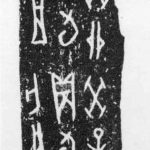 December 8, 2023 - Early China Seminar Lecture Series
December 8, 2023 - Early China Seminar Lecture Series
“On the Newly Identified Phrase ‘Worry is gone’ yōu wáng 憂亡, in the Shāng Oracle Bone Inscriptions”
Speaker: Adam Schwartz, Hong Kong Baptist University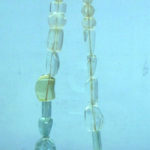 November 10, 2023 - Early China Seminar Lecture Series
November 10, 2023 - Early China Seminar Lecture Series
“Hepu and the Maritime Silk Road”
Speaker: Francis Allard, Indiana University of Pennsylvania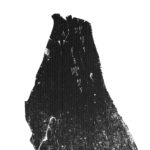 October 20, 2023 - Early China Seminar Lecture Series
October 20, 2023 - Early China Seminar Lecture Series
“Hunting and Warfare: History of Shi 勢 in Early China”
Speaker: Boqun Zhou, University of Hong Kong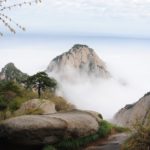 September 29, 2023 - Early China Seminar Lecture Series
September 29, 2023 - Early China Seminar Lecture Series
“Stirrings of the Heart, Stirrings of the Cosmos: The Worlds of Classical Chinese Aesthetics”
Speaker: Paul R. Goldin, University of Pennsylvania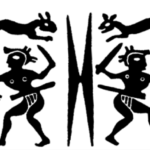 May 5, 2023 - Early China Seminar Lecture Series
May 5, 2023 - Early China Seminar Lecture Series
“Long-term Perspectives on Deer Management in China”
Speaker: Katherine Brunson, Wesleyan University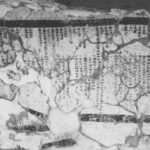 April 14, 2023 - Early China Seminar Lecture Series
April 14, 2023 - Early China Seminar Lecture Series
“Yueling and Yueling Commentary during the Han in Light of Xuanquanzhi”
Speaker: Charles Sanft, University of Tennessee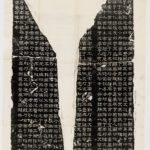 March 31, 2023 - Early China Seminar Lecture Series
March 31, 2023 - Early China Seminar Lecture Series
“Fall of the Scribes and the Rise of Han Literati”
Speaker: Christopher J. Foster, University of London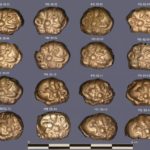 March 3, 2023 - Early China Seminar Lecture Series
March 3, 2023 - Early China Seminar Lecture Series
“Art and Technology: Early “Animal Style” Gold Artifacts Found in Northwest China and the Eurasian steppes”
Speaker: Yan (Fiona) Liu, Columbia University / Northwestern Polytechnical University (China)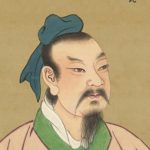 February 10, 2023 - Early China Seminar Lecture Series
February 10, 2023 - Early China Seminar Lecture Series
“What Were They Thinking? History Making in the “Command to Yue” 說命 Chapter of the Exalted Writings (Shangshu 尚書)”
Speaker: Maddalena Poli, Pomona College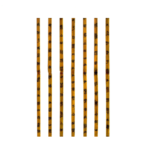 December 9, 2022 - Early China Seminar Lecture Series
December 9, 2022 - Early China Seminar Lecture Series
“Parallel Lives: Yi Yin, Fu Yue, and the Duke of Zhou”
Speaker: Kuan-yun (Kevin) Huang, National Sun Yat-sen University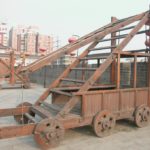 November 18, 2022 - Early China Seminar Lecture Series
November 18, 2022 - Early China Seminar Lecture Series
“King Wen’s Just War: The Conquest of Chong in Early Chinese Discourse”
Speaker: Nicholas Vogt, Indiana University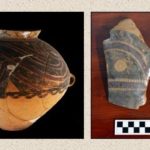 October 21, 2022 - Early China Seminar Lecture Series
October 21, 2022 - Early China Seminar Lecture Series
“From Gansu to Stockholm: Combining Excavations and Collections to Explore Interregional Interactions in Neolithic Northwestern China”
Speaker: Andrew Womack, Furman University September 30, 2022 - Early China Seminar Lecture Series
September 30, 2022 - Early China Seminar Lecture Series
“Jerry Norman’s Ideas on the Reconstruction of Chinese”
Speaker: David Branner, Independent Scholar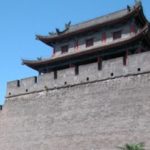 May 6, 2022 - Early China Seminar Lecture Series
May 6, 2022 - Early China Seminar Lecture Series
“Engineering and Defense in the Later Mohist Military Chapters: The Organization of People, Objects, and Landscapes”
Speaker: Erica Brindley, Pennsylvania State University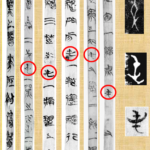 April 15, 2022 - Early China Seminar Lecture Series
April 15, 2022 - Early China Seminar Lecture Series
“Revisiting the Syntactical Functions and Semantic Features of the Universal Quantifier tun屯 in Early Chinese Texts”
Speaker: Huaqiang Song, Wuhan University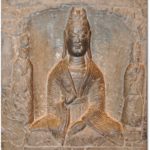 April 8, 2022 - Early China Seminar Lecture Series
April 8, 2022 - Early China Seminar Lecture Series
“Stele-statues and Manuscripts: Exploring the Buddho-Daoist Stelae of the Northern Dynasties”
Speaker: Gil Raz, Dartmouth College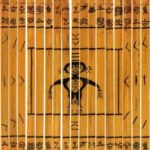 March 11, 2022 - Early China Seminar Lecture Series
March 11, 2022 - Early China Seminar Lecture Series
“What is Early Chinese Religion”
Speaker: Ori Tavor, University of Pennsylvania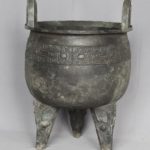 February 18, 2022 - Early China Seminar Lecture Series
February 18, 2022 - Early China Seminar Lecture Series
“Copper Mining and Bronze Production in Shandong Province: A New Perspective on the Political Economy of the Shang State”
Speaker: Qingzhu Wang, Columbia University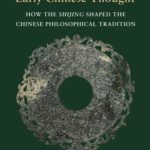 February 11, 2022 - Early China Seminar Lecture Series
February 11, 2022 - Early China Seminar Lecture Series
“Early Chinese Thought via Shijing 詩經”
Speaker: Mick Hunter, Yale University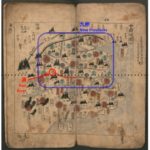 December 10, 2021 - Early China Seminar Lecture Series
December 10, 2021 - Early China Seminar Lecture Series
“The Han River as the Central Axis and the Predominance of Water: Questioning the Claim of “No Chu-related Traits” in the View of Terrestrial Space in the Rong Cheng shi Manuscript (4th c. BCE)”
Speaker: Vera Dorofeeva-Lichtmann, French National Centre for Scientific Research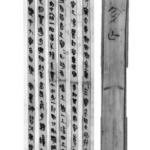 November 19, 2021 - Early China Seminar Lecture Series
November 19, 2021 - Early China Seminar Lecture Series
“Collecting and Disseminating Technical Knowledge”
Speaker: Rens Krijgsman, Tsinghua University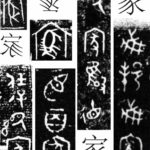 October 8, 2021 - Early China Seminar Lecture Series
October 8, 2021 - Early China Seminar Lecture Series
“Shang and Zhou Concepts of Family and Lineage”
Speaker: Maria Khayutina, Ludwig Maximilian University of Munich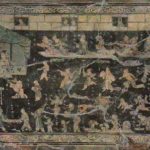 March 26, 2021 - Early China Seminar Lecture Series
March 26, 2021 - Early China Seminar Lecture Series
“Feasts and Gifts: Food Redistribution in Early Imperial China”
Speaker: Moonsil Lee Kim, Rhode Island College March 12, 2021 - Early China Seminar Lecture Series
March 12, 2021 - Early China Seminar Lecture Series
“Fields, Markets and Trees: Contending Paradigms of Growth in Early China”
Speaker: Romain Graziani, École Normale Supérieure de Lyon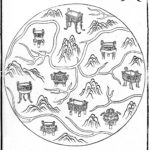 February 19, 2021 - Early China Seminar Lecture Series
February 19, 2021 - Early China Seminar Lecture Series
“Charting the Early Chinese Oikumene”
Speaker: Min Li, University of California, Los Angeles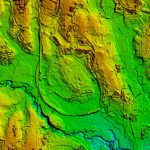 December 11, 2020 - Early China Seminar Lecture Series
December 11, 2020 - Early China Seminar Lecture Series
“Water Management in Prehistoric China: A Case Study of the Jianghan Plain (6000-4000 BP)”
Speaker: Jianguo Liu, Chinese Academy of Social Sciences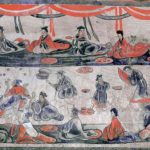 November 6, 2020 - Early China Seminar Lecture Series
November 6, 2020 - Early China Seminar Lecture Series
“Good Wives? Jealousy and Domestic Violence in Marriages in Early China”
Speaker: Olivia Milburn, Seoul National University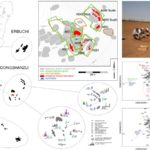 October 23, 2020 - Early China Seminar Lecture Series
October 23, 2020 - Early China Seminar Lecture Series
“Understanding Hongshan Core-Zone Households and Communities”
Speaker: Christian E. Peterson, University of Hawaii at Manoa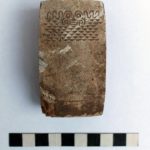 September 25, 2020 - Early China Seminar Lecture Series
September 25, 2020 - Early China Seminar Lecture Series
“What were the Prime Movers for the Transition to Agriculture: Insights from Archaeological Research in Northeast China”
Speaker: Gideon Shelach-Lavi, The Hebrew University of Jerusalem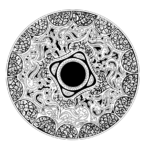 February 21, 2020 - Early China Seminar Lecture Series
February 21, 2020 - Early China Seminar Lecture Series
“Cheap Substitutes or Fashionable Luxuries? The Use of Iron Mirrors in the Eastern Han”
Speaker: Yanlong Guo, Smith College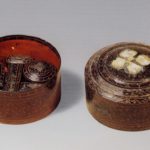 February 7, 2020 - Early China Seminar Lecture Series
February 7, 2020 - Early China Seminar Lecture Series
“The Material Culture of Personal Adornment in Ancient China”
Speaker: Sheri Lullo, Union College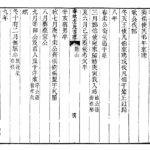 November 22, 2019 - Early China Seminar Lecture Series
November 22, 2019 - Early China Seminar Lecture Series
“Spring and Autumn Historiography: Formulaic phrasing and hierarchical display in Spring and Autumn records”
Speaker: Newell Ann Van Auken, University of Iowa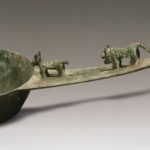 October 18, 2019 - Early China Seminar Lecture Series
October 18, 2019 - Early China Seminar Lecture Series
“The Inner Asian Frontier Re-examined: Shaping the Study of Artifacts and Mental Boundaries”
Speaker: Yan Sun, Gettysburg College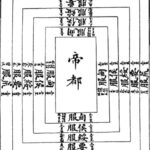 September 20, 2019 - Early China Seminar Lecture Series
September 20, 2019 - Early China Seminar Lecture Series
“Coining Chinese Civilization: The Emergence of Civilizational Consciousness in Early China”
Speaker: Uffe Bergeton, University of North Carolina at Chapel Hill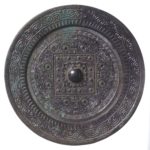 May 3, 2019 - Early China Seminar Lecture Series
May 3, 2019 - Early China Seminar Lecture Series
“Ornament, Text, and the Creation of Sishen Mirrors in Western Han China”
Speaker: Jie Shi, Bryn Mawr College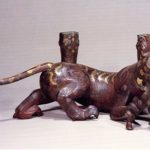 April 19, 2019 - Early China Seminar Lecture Series
April 19, 2019 - Early China Seminar Lecture Series
“Material Culture, Identity, and Statecraft in the State of Zhongshan, Warring States Period”
Speaker: Xiaolong Wu, Hanover College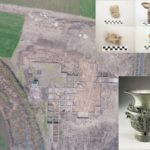 March 29, 2019 - Early China Seminar Lecture Series
March 29, 2019 - Early China Seminar Lecture Series
“Bronze-vessel Casting Industry and Regional Center of the Huai River Valley during the Shang (ca. 1400–1200 BC)”
Speaker: Xiaolin He, Wuhan University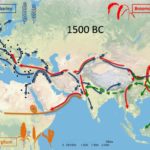 March 8, 2019 - Early China Seminar Lecture Series
March 8, 2019 - Early China Seminar Lecture Series
“The Wind that Shakes the Barley: Consequences of the Food Globalization in Prehistory”
Speaker: Xinyi Liu,Washington University in St. Louis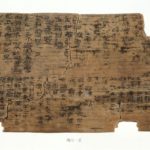 February 22, 2019 - Early China Seminar Lecture Series
February 22, 2019 - Early China Seminar Lecture Series
“Rewriting Early Chinese Technical Literature for the Age of Empire”
Speaker: Ethan Harkness, New York University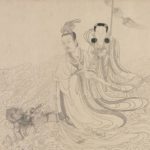 February 1, 2019 - Early China Seminar Lecture Series
February 1, 2019 - Early China Seminar Lecture Series
“Approaching Chinese Shamanism through a Comparative Context, With Assistance from the Early Chinese Song Cycle called 'The Nine Songs'”
Speaker: Thomas Michael, Beijing Normal University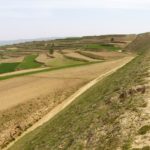 January 25, 2019 - Early China Seminar Lecture Series
January 25, 2019 - Early China Seminar Lecture Series
“State and Environment in China's First Empire: A Political Ecology of Qin”
Speaker: Brian Lander, Brown University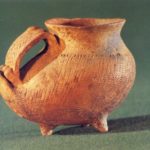 December 19, 2018 - Early China Seminar Lecture Series
December 19, 2018 - Early China Seminar Lecture Series
“Routes of Communication between Erlitou Culture and the Southern Region in Bronze Age China”
Speaker: Pang Xiaoxia, Tang Center for Early China; Institute of Archaeology, CASS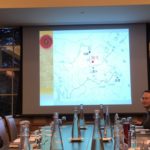 November 16, 2018 - Early China Seminar Lecture Series
November 16, 2018 - Early China Seminar Lecture Series
“New Discoveries at Taosi and the Study of State Formation in Early China”
Speaker: Gao Jiangtao, Institute of Archaeology CASS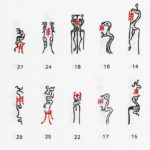 November 2, 2018 - Early China Seminar Lecture Series
November 2, 2018 - Early China Seminar Lecture Series
“‘Classical Chinese’ and its Discontents: What, if anything, was yăyán 雅言 ('refined language')?”
Speaker: Wolfgang Behr, University of Zürich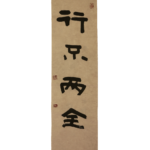 October 12, 2018 - Early China Seminar Lecture Series
October 12, 2018 - Early China Seminar Lecture Series
“The Vulnerability of Integrity in Early Confucian Thought”
Speaker: Michael Ing, Indiana University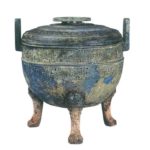 September 28, 2018 - Early China Seminar Lecture Series
September 28, 2018 - Early China Seminar Lecture Series
“Researching the Cultural History of Xiangyang through Archaeological Remains”
Speaker: Glenda Chao, Ursinus College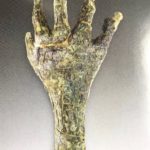 May 4, 2018 - Early China Seminar Lecture Series
May 4, 2018 - Early China Seminar Lecture Series
“Divination and the Body in Ancient China”
Speaker: Constance A. Cook, Lehigh University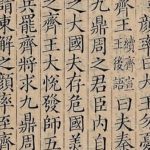 April 20, 2018 - Early China Seminar Lecture Series
April 20, 2018 - Early China Seminar Lecture Series
“On the Creation of the Warring States: An Exploration of a Historiographical Staple”
Speaker: Miranda Brown, University of Michigan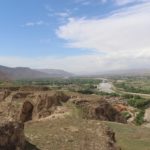 March 23, 2018 - Early China Seminar Lecture Series
March 23, 2018 - Early China Seminar Lecture Series
“Technological Changes on the Proto-Silk Roads: The Tao River Archaeology Project, Gansu, China”
Speaker: Rowan Flad, Harvard University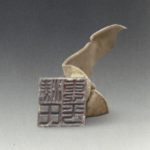 March 02, 2018 - Early China Seminar Lecture Series
March 02, 2018 - Early China Seminar Lecture Series
“Notes on the Note (ji 記) in Early Chinese Manuscripts: Between Administration and Affect”
Speaker: Luke Habberstad, University of Oregon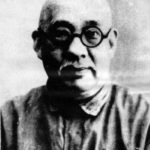 February 09, 2018 - Early China Seminar Lecture Series
February 09, 2018 - Early China Seminar Lecture Series
“How Classical Chinese Grammar Looked to Its First Native Students”
Speaker: David Prager Branner, independent scholar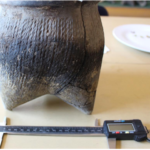 November 17th, 2017 - Early China Seminar Lecture Series
November 17th, 2017 - Early China Seminar Lecture Series
“Communities and Practice in Early China – Social Action in the Zhou World”
Speaker: Yitzchak Jaffe, ISAW, NYU
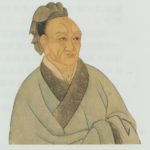 October 27th, 2017 - Early China Seminar Lecture Series
October 27th, 2017 - Early China Seminar Lecture Series
“Reading Shi Ji without the Biographical Fallacy”
Speaker: Yang Lei, Carleton College
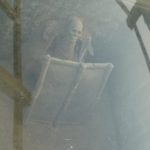 October 6, 2017 - Early China Seminar Lecture Series
October 6, 2017 - Early China Seminar Lecture Series
“Fleshing out the Social Identity of Human Sacrificial Victims in Late Shang, China”
Speaker: Daniela Wolin, Yale University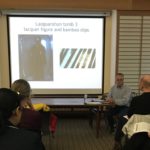 May 5, 2017 - Early China Seminar Lecture Series
May 5, 2017 - Early China Seminar Lecture Series
“Early Chinese Medical Literature before the Huangdi 黃帝 Classic: New Manuscripts from Laoguanshan 老官⼭ Tomb 3, Sichuan”
Speaker: Donald Harper, University of Chicago“Gender and Economic Productivity in Han China”
Speaker: Tamara Chin, Brown University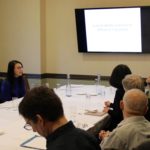 March 31, 2017 - Early China Seminar Lecture Series
March 31, 2017 - Early China Seminar Lecture Series
“Who is the Barbarian in Zuozhuan?”
Speaker: Wai-yee Li, Harvard University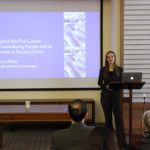 February 17, 2017 - Early China Seminar Lecture Series
February 17, 2017 - Early China Seminar Lecture Series
“Beyond the Five Colors: Reconsidering Purple and its Sources in Ancient China.”
Speaker: Allison Miller, Southwestern University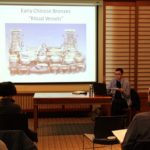 January 27, 2017 - Early China Seminar Lecture Series
January 27, 2017 - Early China Seminar Lecture Series
“The Emergence and Development of Mechanical Duplication Technique in the Casting of Ancient Chinese Bronze Inscriptions”
Speaker: SAKIKAWA Takashi, Jilin University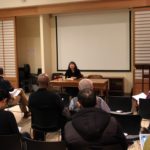 December 9, 2016 - Early China Seminar Lecture Series
December 9, 2016 - Early China Seminar Lecture Series
“Understanding Xunzi and Zhuangzi through Hui Shi”
Speaker: Annping Chin, Yale University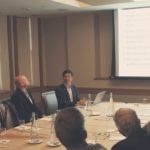 November 11, 2016 - Early China Seminar Lecture Series
November 11, 2016 - Early China Seminar Lecture Series
“Investigating the Anyang Bone Industries: Technologies, Standardization, and the Missing Royal Workshop”
Speaker: Yung-Ti Li, University of Chicago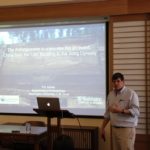 October 14, 2016 - Early China Seminar Lecture Series
October 14, 2016 - Early China Seminar Lecture Series
“The Anthropocene Is A Process Not An Event: China from the Late Neolithic to the Song Dynasty”
Speaker: Tristram Kidder, Washington University in St. Louis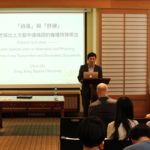 September 9, 2016 - Early China Seminar Lecture Series
September 9, 2016 - Early China Seminar Lecture Series
“Xiaoyao and shuchi : Some Special Uses of Alliterative and Rhyming Binomes in the Transmitted and Excavated Documents”
Speaker: Chen Zhi, Hong Kong Baptist University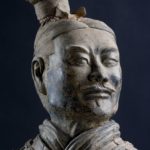 May 17, 2016 - Early China Seminar Lecture Series
May 17, 2016 - Early China Seminar Lecture Series
“The First Emperor’s Mausoleum: New Discoveries and New Interpretations”
Speaker: Cao Wei, Shaanxi University, China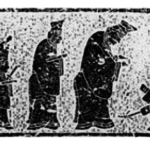 April 15, 2016 - Early China Seminar Lecture Series
April 15, 2016 - Early China Seminar Lecture Series
“Picturing Political Abstractions in Han China”
Speaker: Martin Powers, University of Michigan, Ann Arbor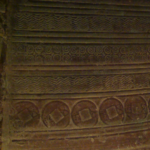 March 11, 2016 - Early China Seminar Lecture Series
March 11, 2016 - Early China Seminar Lecture Series
“Idlers on the Southwest Frontier: Native Continuities or Evasions of Han Imperial Time”
Speaker: Alice Yao, University of Chicago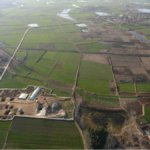 February 28, 2016 - Early China Seminar Lecture Series
February 28, 2016 - Early China Seminar Lecture Series
“The History of the State of Zeng through New Archeological Discoveries”
Speaker: Fang Qin, Hubei Provincial Museum and Institute of Cultural Relics and Archaeology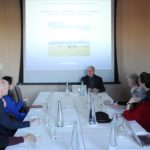 February 26, 2016 - Early China Seminar Lecture Series
February 26, 2016 - Early China Seminar Lecture Series
“Dependency vs. Vulnerability in Early China-Steppe Interaction: New Data for Old Problems”
Speaker: Nicola Di Cosmo, Institute for Advanced Study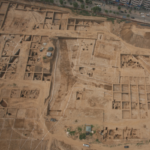 January 29, 2016 - Early China Seminar Lecture Series
January 29, 2016 - Early China Seminar Lecture Series
“Urban Neighborhoods: Social and Spatial Organization of the Great Shang Settlement”
Speaker: Jing Zhichun, University of British Columbia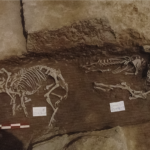 December 11, 2015 - Early China Seminar Lecture Series
December 11, 2015 - Early China Seminar Lecture Series
“Rethinking ritual and the excavation of special deposits at Shang sites”
Speaker: Katrinka Reinhart, San Francisco State University November 13, 2015 - Early China Seminar Lecture Series
November 13, 2015 - Early China Seminar Lecture Series
“Recent Discoveries on Old Chinese and Pre-Qín Documents”
Speaker: William H. Baxter, University of Michigan, Ann Arbor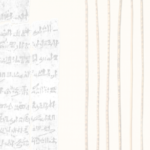 October 16, 2015 - Early China Seminar Lecture Series
October 16, 2015 - Early China Seminar Lecture Series
“Excavated Legal Cases from Ancient China and Egypt”
Speaker: Professor Anthony Barbieri-Low, University of California, Santa BarbaraSpeaker: Chen Jianing 陈家宁, Visiting Scholar, EALC, University of Pennsylvania Date: May 8, 2015 Presentation: “The Evolution of Xiwangmu (Queen Mother of the West) and Dongwanggong (King Father of the East) in Archaeological Records” 西王母、東王公源流考——以先秦兩漢考古資料為中心
Speaker: Mark Csikszentmihalyi, University of California, Berkeley Date: April 3, 2015 Presentation: “Crooked and licentious cults: Han popular movements seen through religion’s double lens”
Speaker: Vincent Leung, ISAW, NYU (2014 – 2015); University of Pittsburgh Date: March 6, 2015 Presentation: “Why History Mattered? On the Politics of the Past in Early China”
Speaker: Gopal Sukhu, Queens College and Columbia University Date: February 6, 2015 Presentation: “Translating the Tian wen: Where is the Irony?”
Speaker: Guolong, Lai, Institute for Advanced Study (2014 – 15); University of Florida Date: December 5, 2014 Presentation: “ ’Rabbit (Tu) and ‘Rat’ (Shu) in Chu Manuscripts: The Contact and Impact of the Linguistic Substratum on Old Chinese”
Speaker: Jessica Rawson, Oxford University Date: November 7, 2014 Presentation: “Why did the Chinese make Bronze Ritual Vessels: Origins and Outcomes”
Speaker(s): Chen Wei 陳偉, Wuhan University; Yang Hua 楊華, Wuhan University; Li Tianhong 李天虹, Wuhan University Date: October 27, 2014 Presentations:
- Chen Wei: “秦簡牘所見的文書制度”
- Yang Hua: “上古中國的‘夜禱’:兼談原始巫術與儒家禮儀的關係”
- Li Tianhong: “文峰塔一號墓曾侯 編鐘的發現及其初步研究”
Speaker: Ken Brashier, Reed College Date: October 3, 2014 Presentation: “Wen, Wu, and me, too: A hypothesis on public memory construction in early China”
